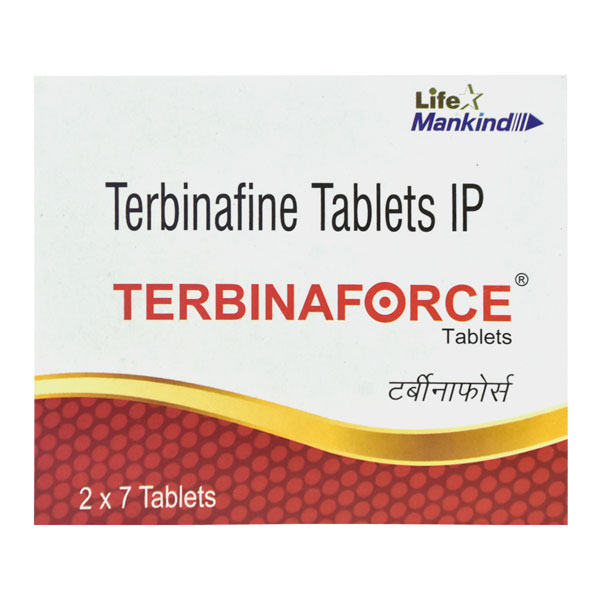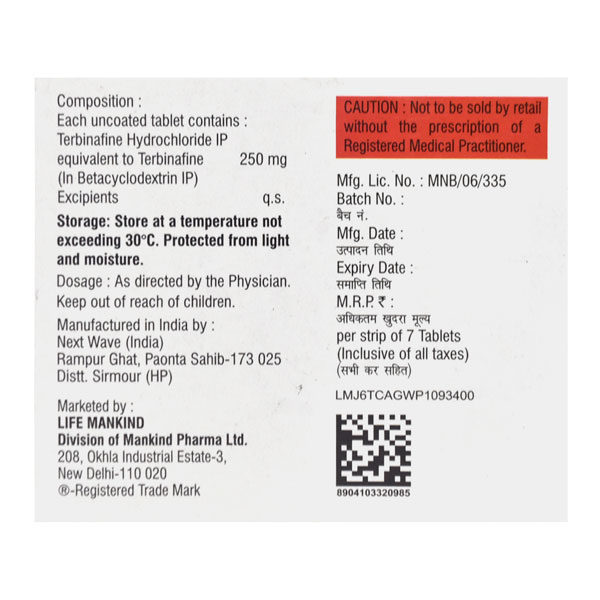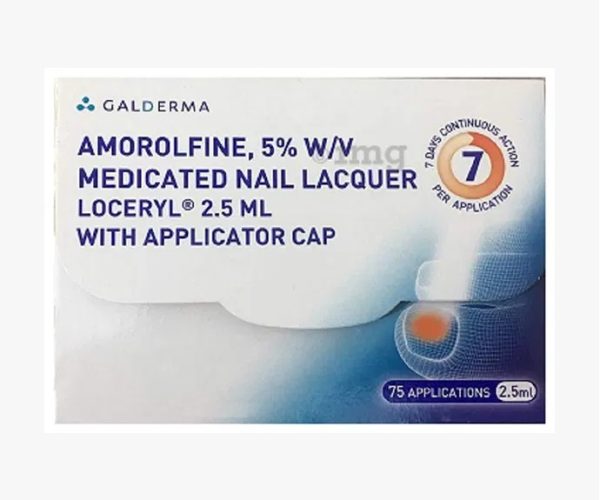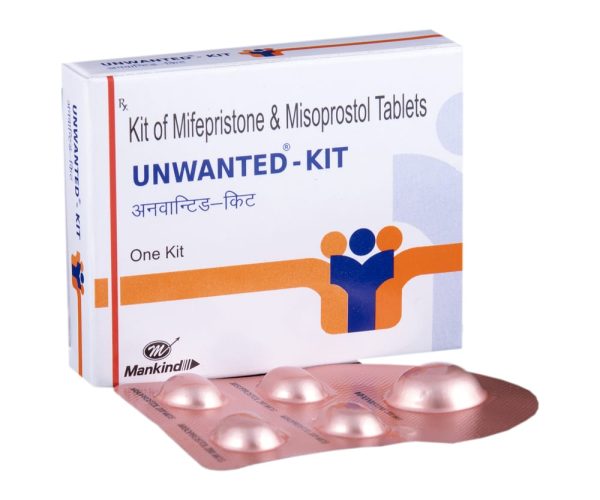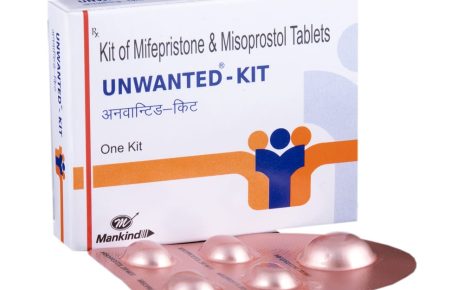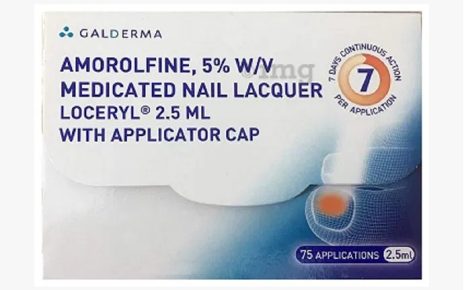Terbinafine 250 mg is an oral antifungal medication used to treat various fungal infections. It belongs to a class of drugs called allylamines, which work by inhibiting the growth of fungi that cause infections.
Terbinafine is commonly prescribed for conditions such as athlete’s foot (tinea pedis), jock itch (tinea cruris), ringworm (tinea corporis), and fungal nail infections (onychomycosis). These infections are caused by different types of fungi that can invade the skin, nails, or other parts of the body.
When taken orally, Terbinafine is absorbed into the bloodstream and distributed throughout the body. It accumulates in the skin, hair, and nails, where it acts directly on the fungal cells, inhibiting their growth and ultimately leading to their death.
The recommended dosage of Terbinafine for most fungal infections is 250 mg once daily. However, the duration of treatment can vary depending on the specific infection being treated. For example, treatment for athlete’s foot or jock itch typically lasts for 2 to 6 weeks, while treatment for fungal nail infections can last several months.
It is important to take Terbinafine exactly as prescribed by your healthcare provider. Do not exceed the recommended dose or duration of treatment without consulting your doctor. Skipping doses or stopping treatment prematurely may result in the infection not being fully cleared and could increase the risk of recurrence.
Before starting treatment with Terbinafine, it is essential to inform your doctor about any existing medical conditions, including liver or kidney problems. Terbinafine can affect liver function, so regular monitoring of liver enzymes may be necessary during treatment.
Like any medication, Terbinafine can cause side effects. The most common side effects include gastrointestinal symptoms such as nausea, stomach pain, diarrhea, and taste disturbances. These side effects are usually mild and temporary. However, if you experience severe or persistent side effects, it is important to seek medical attention.
Terbinafine may also interact with other medications. It is important to inform your healthcare provider about all the medications you are currently taking, including prescription drugs, over-the-counter medications, and herbal supplements. Certain medications, such as antifungal agents, antidepressants, and beta-blockers, can interact with Terbinafine and may require dose adjustments or close monitoring.
In some cases, Terbinafine may not be suitable for everyone. It is contraindicated in individuals with known hypersensitivity to Terbinafine or any of its components. It should be used with caution in patients with liver or kidney disease, as well as those with a history of alcohol abuse.
If you are considering purchasing Terbinafine 250 mg online, it is crucial to exercise caution and ensure that you are obtaining it from a reputable source. Online pharmacies should be licensed and authorized to sell medications, and it is advisable to verify their credentials and legitimacy before making a purchase.
When purchasing medications online, it is important to be aware of the potential risks, such as counterfeit or substandard products. Counterfeit drugs may not contain the correct active ingredient or may be contaminated, posing a significant health risk. Therefore, it is advisable to purchase medications from trusted sources and avoid suspicious or unverified online pharmacies.
It is also recommended to consult with a healthcare professional before starting any new medication, including Terbinafine. They can provide personalized advice, assess the suitability of the medication for your specific condition, and guide you on proper dosage and treatment duration.
In summary, Terbinafine 250 mg is an oral antifungal medication used to treat fungal infections of the skin, hair, and nails. It works by inhibiting the growth of fungi, leading to their eventual death. However, it is important to


